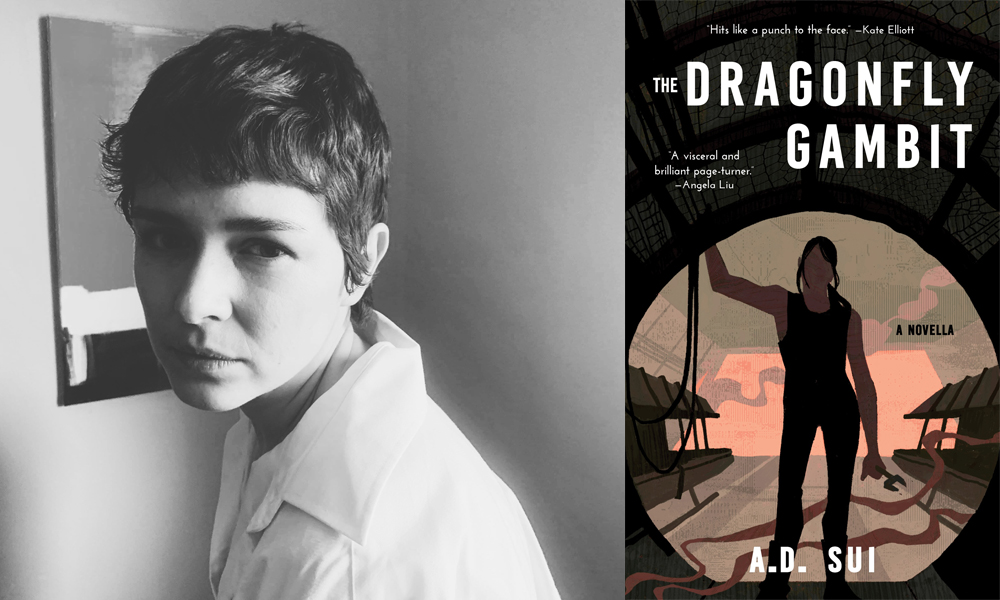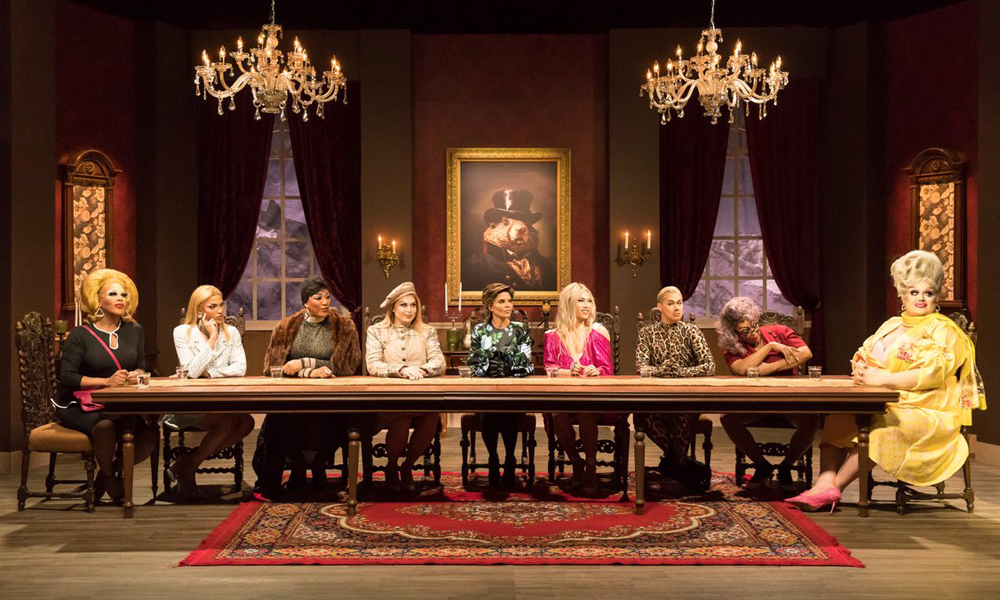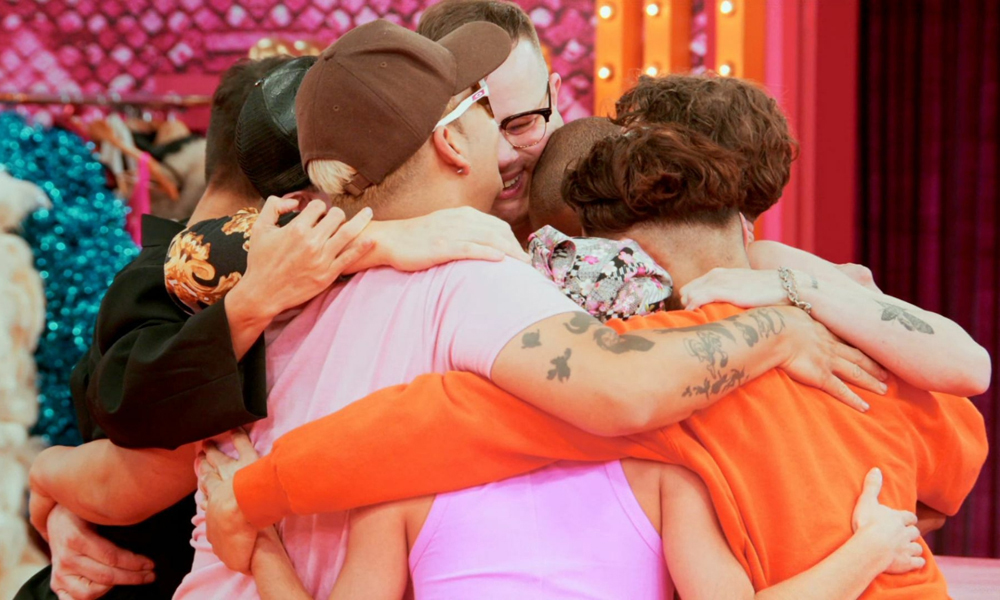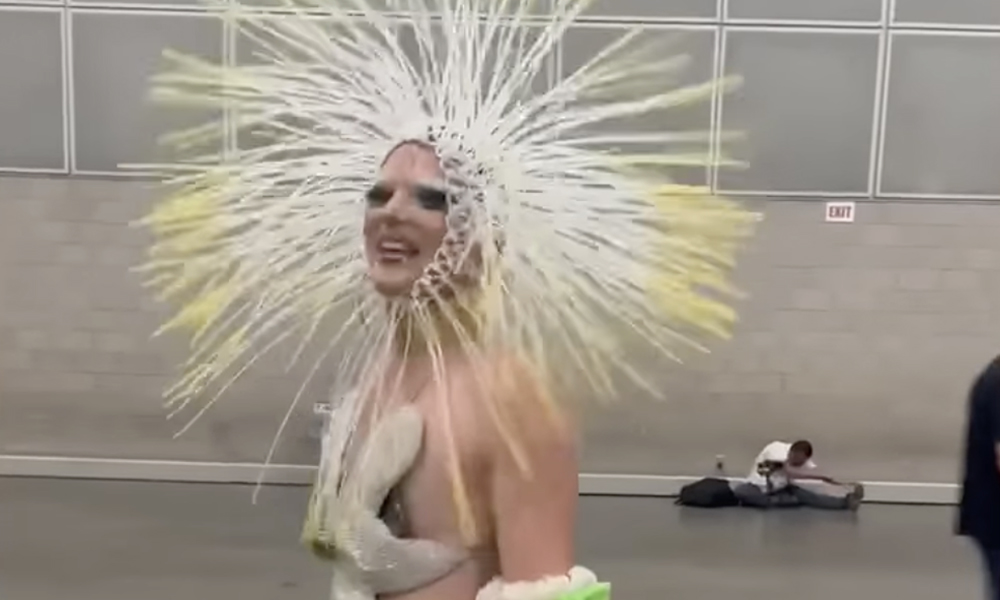The author sits down with IN to talk about her just released queer novella, a brilliant page-turner…
Ukrainian born; Toronto author A.D. Sui has just released her debut novella The Dragonfly Gambit to rave reviews. The queer, disable science fiction writer brings the experience of navigating the world with a disability to life through her characters in the brilliant page-turner.
The phrase “burn it all down” is a recurring one in popular literature, but it is one that Sui is able to approach with a fresh perspective. In The Dragonfly Gambit, a military pilot plans her revenge against an empire that made her a soldier in the first place after a career-ending injury. The former fighter pilot cheats, and seduces her way to the very top, to destroy the fleet she was once a part of.
IN Magazine recently sat down with Sui to chat about the revenge novella and the inspiration behind the story, as well as how her personal experiences and identities influence her work, navigating the responsibility of representing queer and disabled characters, academia, fencing, and much more.
Let’s kick things off and talk about your highly anticipated debut novella, The Dragonfly Gambit. Can you tell us a bit about the inspiration behind the story and what readers can expect from it?
A lot of rage, and spite, and other juicy emotions. Growing up, I didn’t see disabled protagonists in speculative fiction, especially not female or female-identifying protagonists, that were also disabled, and also queer. Ultimately, this novella was me writing a story for myself so I could grapple with a lot of these intersections on-page and figure out how I feel about my own disability.
I also have very complicated emotions about the military and empires, in general. Within science fiction spaces, militaries and empires have long been glamorized. We’re now in a time when these concepts are presented in a more critical way and so I really wanted to dive in and explore the ways in which both militaries and empires erase individuality and community, constrain choice, and dehumanize those who participate in them.
If you’re a reader who enjoys un-womanly conduct, anti-military science fiction (and isn’t too squeamish), then this one is for you.
As a Ukrainian-born, queer writer, how do your personal experiences and identities influence your writing, particularly in the science fiction genre?
In science fiction and fantasy genres we’ve long accustomed to heroes, royalty, and super-soldiers being the protagonists of the story. I tend to lean the opposite direction and write from the margins. I like my protagonists to be failures, social pariahs, and slackers. Growing up in Canada as an immigrant, I never felt like I fit in. Add being disabled and closeted-queer to the mix and you get someone who just kind of floated between groups and identities, never finding one they felt at home with. Oh, and I failed at being an academic, and an athlete, so you can add those to the list as well.
These experiences really got me interested in the stories of people who fail and who don’t feel like they belong anywhere. I think those make the most interesting stories because then you get characters who are desperate, and who make poor choices, and suffer high consequences. And in real life, that’s quite painful to witness, but in literature that’s where the fun is in terms of both reading and writing. A lot of my writing is me working through my own failures and figuring out how to be okay with them, and how to learn from them. I might be revealing too much of myself there, but the benefits have been tremendous!
The Dragonfly Gambit is published by Neon Hemlock. What has your experience been like as a Canadian writer working with an independent U.S. publisher known for promoting diverse voices?
I cannot say enough good things about Neon Hemlock and dave ring, who is the editor of the press. Neon Hemlock is a micro-press in the most literal sense of the word—it’s just dave, you’d never be able to tell though because dave handles every novella with such care and attention. You’d think there is a whole production team behind the scenes. dave has a strong vision for Neon Hemlock which is to champion queer and other marginalized voices, and I think he is succeeding on that front. I highly recommend the press’s publications to anyone looking for queer speculative fiction. There’s something there for everyone and this year’s line-up is absolutely spectacular.
Your background includes academia and fencing. How, if at all, have these experiences shaped your approach to storytelling?
Unfortunately, fencing has yet to make an appearance in my fiction, but maybe I’ll draft up a fencing romance one day. Who knows? My doctoral research used a narrative methodology to complete the research. In short, people make sense of the world and themselves by telling stories. Sometimes people will tell stories to themselves about themselves to process their experiences and to understand their changing identities. Naturally, many of my characters engage in this sort of storytelling by sometimes outright lying to themselves about what kinds of people they are, what they fear, and what they want. My favorite kind of writing is where the lies pile up and it’s up to the reader to unpack those layers and get to the painful truth at the center.
How do you navigate the responsibility of representing queer and disabled characters authentically while also creating compelling narratives?
Hopefully well? Ha! I am not an elder queer by any standard, so a lot of my writing is self-reflective and somewhat self-indulgent as I discover and explore my own gender and sexuality through my characters. My relationship with my own disability also fluctuates, so a lot of those conflicting feelings go on the page as well.
But my experience with these identities is my own and I am by no means an expert in either. What I can aspire to is to portray what one kind of experience may look like. And that can really resonate with some people, and it can fall flat with others, but in the end, it adds another square to the tapestry of queer and disabled experiences and that can only be a good thing. Diversity in our literary spaces can only be a good thing.
What are you working on next?
I’m always drafting a new long-form project and a dozen short stories! But currently, I’m working on a sequel to something I’m not yet allowed to talk about. Publishing runs on secrets! Every writer will tell you that writing your first sequel is a challenge, and naturally, they are one hundred percent right, and naturally I didn’t listen to them.
But you can expect the classic Sui topics like death, loneliness, and finding solace in others once I’m finished.
A.D. Sui’s debut novella The Dragonfly Gambit is available online and in select bookstores across Canada now. For more information, sneak peeks, or to subscribe to Sui’s free, monthly newsletter visit thesuiway.ca.






POST A COMMENT